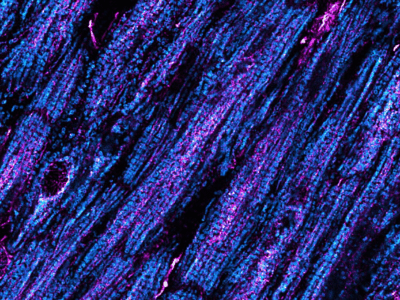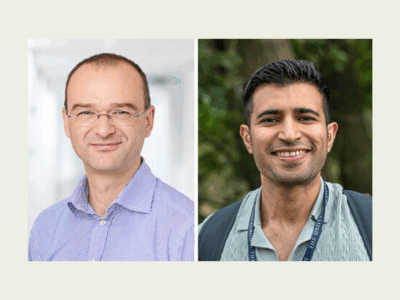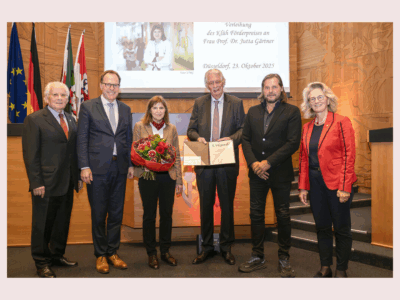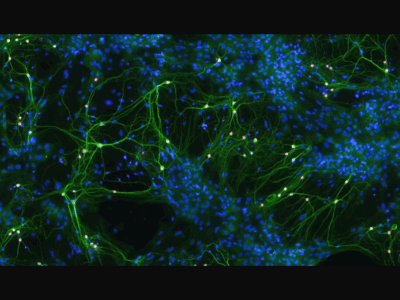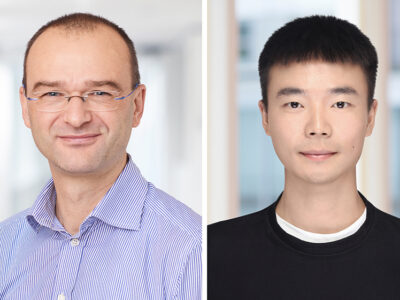12.11.2025
Atrial fibrillation: disrupted calcium communication throws the heart out of rhythm
A joint study by Göttingen University Medical Center (UMG) and Würzburg University Hospital provides new insights into why heart muscle cells lose their rhythm in atrial fibrillation. Disrupted calcium communication between central cell structures in the heart could be a decisive mechanism in this process. The findings have been published
07.11.2025
Millions in funding for research into new mechanisms of translation regulation
The CHAPEROME project, now awarded an ERC Synergy Grant, aims to uncover how molecular folding helpers – known as chaperones – work together with the translation machinery to keep cells functional and adaptable. Of the 712 proposals submitted for this ERC Synergy Grant call, only 66 projects were selected
06.11.2025
Teamwork in the inner ear: our sense of hearing relies on the organised grouping of proteins
For the first time, researchers at the Göttingen Campus have succeeded in examining the tiny synapses in the inner ear — the contact points between hair cells and auditory nerve cells — at a molecular level. They demonstrated that ion channels and other essential hearing proteins are organised in specific
03.11.2025
MBExC Junior Fellow Position for Dr. Christiane Grimm
The MBExC cordially welcomes Dr. Christiane Grimm as new Junior Fellow starting on 3rd November 2025. Her research will focus on “Integrated photonic and genetic tools for all-optical neurophysiology”. Her junior fellow position is affiliated with the Institute for Auditory Neuroscience at the University Medical Center Göttingen. Link to
29.10.2025
Research award for innovative approaches in paediatric neurology
This year, the 25,000 € Klüh Foundation award for the Promotion of Innovation in Science and Research goes to MBExC member Prof. Dr. Jutta Gärtner. The director of the Clinic for Paediatrics and Adolescent Medicine at the University Medical Center Göttingen (UMG) is being honoured for her research into neurometabolic
22.10.2025
New developmental disorder discovered
Variations in the UNC13A gene cause neurological impairments in children Whether we are writing an email, rushing for a bus, or humming a tune, every thought, feeling, and action relies on communication between our roughly 100 billion nerve cells. This exchange of information happens at synapses, where messenger substances
17.10.2025
Early childhood deafness – researchers at Göttingen Campus decipher structure and function of a key hearing protein
Researchers in Göttingen have elucidated the structure and function of otoferlin, a protein that plays a crucial role in the hearing process. If otoferlin is missing or its function is impaired, this causes a common form of early childhood deafness. The results, published in the journal Science Advances, mark a
23.09.2025
Calcium improves the ability to predict dangerous cardiac arrhythmias after heart surgery
Researchers from Göttingen University Medical Center (UMG) and Heidelberg University Hospital (UKHD) have collaborated under the leadership of MBExC member Prof. Dr. Niels Voigt, Professor of Molecular Pharmacology at the Institute of Pharmacology and Toxicology at UMG, and Dr. Dr. Stefan Kallenberger, Head of the Systems Medicine Working Group at
16.09.2025
Melina Schuh honored with Science Breakthrough 2025
MBExC member Melina Schuh, director at the Max Planck Institute (MPI) for Multidisciplinary Sciences and her team filmed the entire ovulation process in mouse follicles in real-time for the first time. For this decisive success in her field, she has been awarded the 2025 Science Breakthrough by the Falling Walls
11.09.2025
Objects strengthen our inner compass
Researchers led by Prof. Dr. Emilie Macé, Head of the ‘Brain-wide Networks’ at the Department of Ophthalmology at the University Medical Center Göttingen (UMG), Co-Spokesperson for the Else Kröner Fresenius Center for Optogenetic Therapies at UMG, and Member of the Cluster of Excellence ‘Multiscale Bioimaging: From Molecular Machines to Networks


